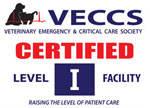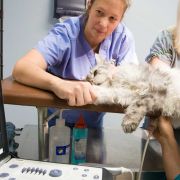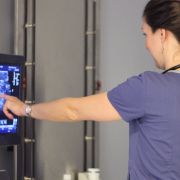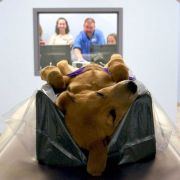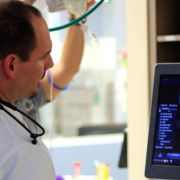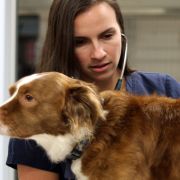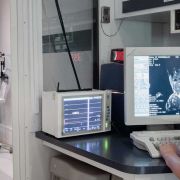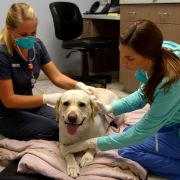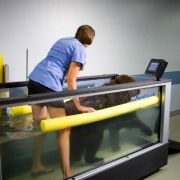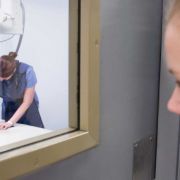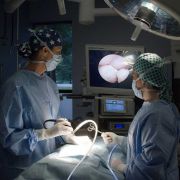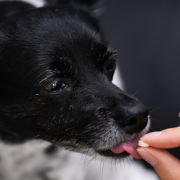Date:
If you keep up with health and science news, you may have heard the concept of the “microbiome,” and its role in overall well-being. When referring to the gut, the microbiome encompasses a vast diversity of billions of microorganisms—chiefly, bacteria—that live in the gastrointestinal tract. Each pet harbors a unique combination of beneficial and undesirable bacteria that, together, affect the body’s various systems. You should not be surprised that gut microbes play a significant role in digestion and metabolism, but did you know that they also aid in vitamin synthesis, immunity, and fighting off harmful pathogens? There is also evidence that gut health impacts neurologic and endocrine function. This unique environment’s intricate inner workings are not only fascinating, but also crucial players in our global health. Whoever coined the term “Trust your gut” must have been onto something!
What if the microbiome is “off?”
Dysbiosis occurs when a bacterial imbalance in the gut is problematic—in short, too many bad bacteria, not enough good bacteria, and reduced diversity of species. This can lead to acute and chronic gastrointestinal disorders, difficulty absorbing nutrients, and changes in mucus production or water balance, among other problems. Dysbiosis can cause secondary gastrointestinal disorders, but can also occur due to a primary disease process.
What is the solution to dysbiosis?
When pets experience gastrointestinal disorders, improving a potential imbalance in the microbiome may help. Veterinarians will often turn to trusted treatments and products to help alleviate your pet’s symptoms, such as diarrhea. The following have proven effective in healing the microbiome:
-
Prebiotics — These are fibers that feed the favorable microorganisms in the gut, allowing them to produce beneficial metabolites, such as short-chain fatty acids. Examples of prebiotics include inulin and certain whole grains. Keep in mind that some naturally occurring prebiotics that may be advantageous in people could be harmful to pets, such as green onions and garlic.
-
Probiotics — These bacteria, when administered in sufficient quantities, can help improve the number of beneficial bacteria in the gut, thereby improving gastrointestinal function. Examples of probiotics include Lactobacillus spp. and Enterococcus faecium. Research is ongoing in pet nutrition, but the benefits of probiotics in humans have been well-documented.
-
Prescription foods — You can purchase prescription diets under the direct supervision of your family veterinarian. A variety of gastrointestinal foods is available, and most will include added fiber, probiotics, vitamins, and other nutrients, to provide a completely balanced meal for your affected pet.
-
Medications — Veterinarians will often use medications for pets when diet and supplementation do not alleviate their clinical conditions. Typically, they will prescribe antibiotics that address the deleterious microorganisms in the gut.
-
Fecal microbiota transplantation (FMT) — This experimental procedure, which aims to replenish the gut microbiome with an abundance of bacterial diversity, works by transplanting a fecal sample from a healthy individual into the gastrointestinal tract of a sick patient, in hopes of creating an ideal floral balance.
How can CVRC help my pet?
Dysbiosis and microbiome health are important factors in gastrointestinal disease, but they don’t paint the entire picture. If your pet is suffering from gastrointestinal discomfort, your first stop should be your primary veterinarian, who will work with you to determine the underlying cause. If initial diagnostics and treatments do not provide your pet relief, your primary care veterinarian may consider referring them to Charleston Veterinary Referral Center for specialized care in our internal medicine department. Our talented team includes two board-certified specialists in small animal internal medicine, along with dedicated veterinary technicians, and a host of advanced tools, such as endoscopy and ultrasound, to serve your pet. We will work closely with you and your veterinarian to accurately diagnose and treat your individual pet—after all, their gut microbiome is like no other.
For further information about the microbiome and gastrointestinal diseases in pets, contact us, or your family veterinarian.



